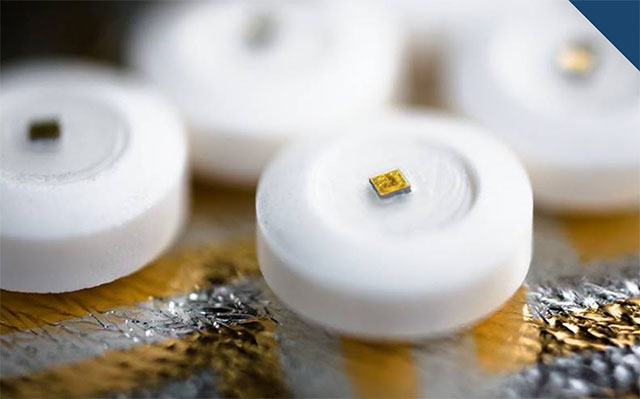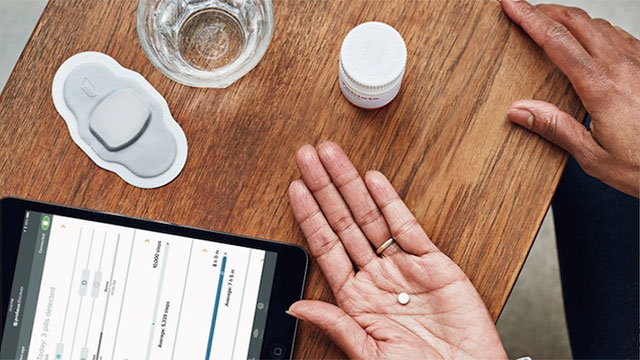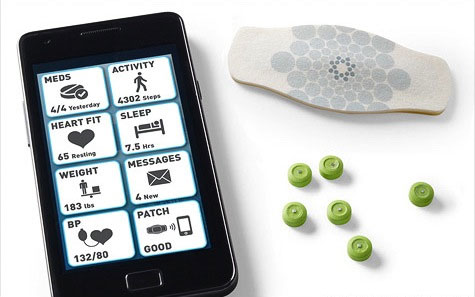Cancer drugs 'smart'? Why not!
A Silicon Valley company has introduced 'smart' cancer drugs, equipped with micro sensors to collect relevant information and remind patients to take medicine.
A medical engineering company called Proteus, based in Silicon Valley, created something called "smart medicine".Basically, this product is the same as the other common pill, except that a small sensor is attached, which can be monitored with a patch attached to the patient's abdomen.

Previously, there were also some drugs that were produced and applied high technology.It is a form of depression and schizophrenia called Abilify.Specifically, in 2017, a company has incorporated its hardware technology into 40 different drugs, ranging from medicines for infectious diseases, mental illness to diabetes.
- 5 items near the bed increase your risk of cancer
As for Proteus, the company is being valued at $ 1.5 billion, and has raised $ 487 million in investments, including huge support from well-known investors in the technology world such as Novartis.And with this new invention, Proteus claims that it will be one of the pioneers in the application of high technology to cancer treatment.
On Thursday, Proteus announced its decision to launch its first clinical trial of new technology for cancer treatment.Accordingly, seven patients with advanced colorectal cancer were given capecitabine chemotherapy drugs fitted with sensors instead of conventional drugs.The program is currently underway in cooperation with Fairview Health Services and the University of Minnesota, and is expected to last for two years.The company expects more than 750 patients to participate in this ambitious trial.

The goal of the test is to determine if this "smart" type of drug is really smart, which can help patients achieve new advances in treatment.An interesting feature of this drug is that it can schedule and remind patients to take medication on time.It is an important goal for conditions such as depression, schizophrenia and cancer - when patients often struggle to take medicine every day.Using this new drug for a long time promises to ensure that patients always follow the right dose, which is an important part of the treatment regimen.
- 5 apps that help identify drugs and remind you to take your medicine on time
"In the treatment of cancer, the difference between using too much medicine and too few drugs is very large," Edward Greeno, an oncologist who is overseeing the trial and director of Cancer consulting services at Minnesota Medical University said.
This drug can contact a doctor and collect information of the patient

Proteus's digital medicine works with a tiny sensor.This sensor can be attached to a tablet and then, it is encased in a translucent shell.This shell will break when the patient swallowes the pill and the sensor starts performing the task.After taking the medicine, the patient will attach another size sensor to the size of the credit card on your abdomen (stomach) so that the devices can connect with each other.
Proteus Company was founded in 2001 and has been granted a license for its smart drug technology by the US Food and Drug Administration in 2012. So far, the company says it has 177,000 Their sensor-mounted tablets have been used in the treatment of a variety of diseases, from tuberculosis drugs to medicines for people with HIV, and now cancer.
- AI-based software can diagnose prostate cancer
In addition to sending a report to the doctor about the patient's medication schedule, Proteus's digital medicine will also be responsible for monitoring the level of patient movement - gathering information to let them know they are constantly on the move. where and for how long.
The drug may be slightly 'difficult to swallow' for patients who are unhappy about being followed remotely, but Greeno said the patients he is currently working with are really feeling the situation is high. more advanced when using this drug.They feel more secure as if they are always watched by doctors all the time of the day.
In addition, Greeno said that the use of digital medicine by the patient also gave him access to important information about the intensity of the patient's physical activity and health - which is essential in the Marketing, as well as motivating him to think about ways to better integrate exercise into cancer treatment in particular and other diseases in general.
Should digital drugs be used massively in health?

Proteus' trial of high-tech use in cancer treatment is an ambitious project.Although up to now, only seven patients have registered to participate, but with practical effectiveness as stated, the ambition to get 750 volunteers to join is completely feasible.In addition, Fairview Health System is also committed to funding the full cost of treatment for patients involved in this project.
Not only that, Proteus also has the ambition to digitize all the drugs that cancer patients are taking, and in the future, all drugs are being used in the market, from anti-nausea drugs and flu. go to painkillers and special medicines.
- India found anti-cancer properties in 3 rice varieties
It is clear that theoretically, digital drugs offer significantly more benefits than conventional drugs.However, scientific evidence about this is still unclear.
A study funded by Proteus with the participation of about 100 hypertensive patients and type 2 diabetes showed that the company's digital medicine had some improvement in treatment compared to conventional drugs. , but the result is somewhat 'mixed'.Specifically, the scientists responsible for this study published in the Journal of Health Research 2017 that patients with hypertension after using Proteus's digital medicine had indicators. Blood pressure is a little better.
Some other scientists have also tried to study whether the function reminding patients to take drugs may bring significant benefits, but the results are not as expected.
It will take a long time for Proteus to prove its effectiveness in its products in practical use, at least after their ambitious test ends in 2021.
See more:
- Scientists develop brain scanners like helmets
- Sensors mounted on teeth track what you eat
- Magnetic nanoparticles are designed to prevent internal bleeding
- You may not know: Eating red meat, chicken can double the risk of diabetes